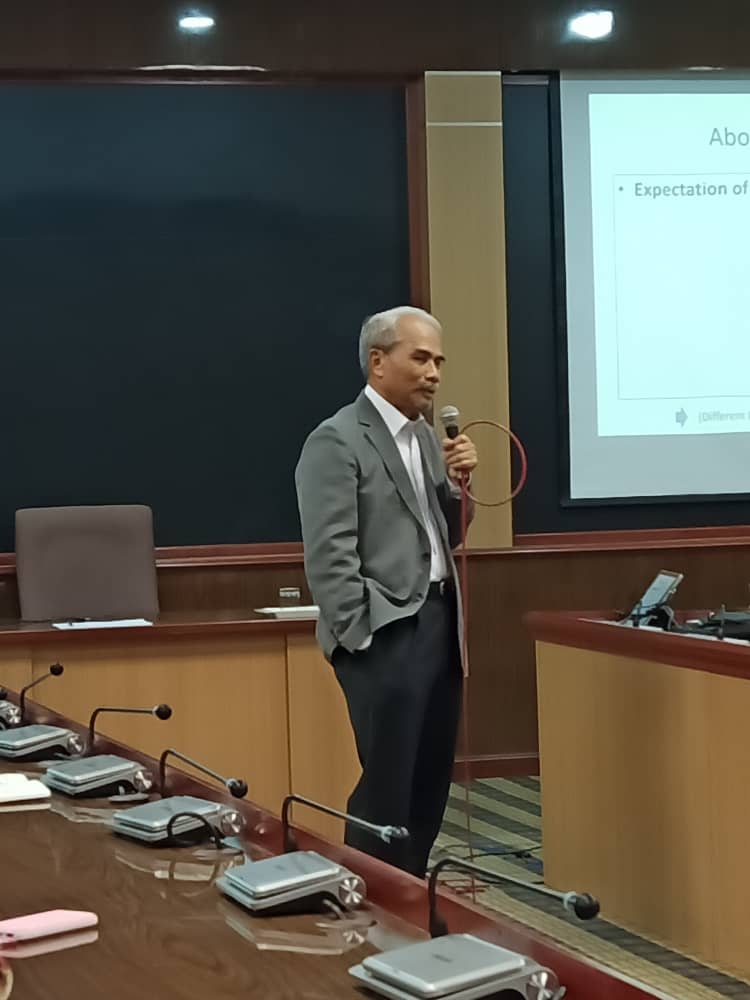Prof Emeritus Datuk Ir Dr Zainai Mohamed talks about AS104 – Remote Supervision at Bilik Ilmuan 1, UTM KL. Thank you SPS for arranging this session. It is superpower brain food to hear from 69 years old wise man talks about effective supervision.

Key things (foundation to understand)
- Research – original investigation undertaken in order to gain knowledge and understanding. These include curiousity-lead activity and work of direct relevance to the needs of commerce and industry.
- Scholarship – generates outputs generate
- Level of higher degree awards
- Bsc Degree Project need approx 300-400 hours with fairly demanding on level of difficulties.
- Master Degree -600-900hours
- Master Project
- Dissertation
- Thesis
- Doctor of philosophy – orginality and make some significant contribution to knowledge at least some of which might be publishable later.
- minimum of 5400 hours.
Part 1: Supervision & Effective Supervision
Supervision must be able to develop research and scholarship capability. The purpose of supervision (why):
- Share knowledge and experience.
- Guide and facilitate the students to produce research and result product.
- Enhance the student research skills
- To monitor the students within his/her study timeline. – GOT is extended monitoring – ensure the student ended at proper time.
- To motivate the students during ups and downs – not necessarily provide the solution since the motivation is itself the solution. Simple discussion, sooth them, connect them to the right people or resources is also part of the motivation.
- To facilitate research process – clarify the path for research process flow – in the reasonable scope.
Effective supervision with respect to processes.
- First of all, for effective supervision – we must know which level of degree award we supervise. e.g. for PhD, it is about supervised research training. Don’t expect the student to deliver all of your expected outcomes.
- In AS104, we are handling the student that intend to solve the real industry problem – Hence we need to carefully identify the reasonable scope and limit for this kind of situation. No need to solve the whole world, department of ministry problem within one phd.
- Develop partnership with the student. It is not only one time meeting. It is the partnership from the beginning until the end.
Expected Outcomes
- Scholarship thinking.
- Produce student with good discipline in academics
- The findings of the students research should contribute to the well being of society
- Develop research Culture and environment – and develop the culture will take sometimes.
- Develop Expertise within body of knowledge.
Part 2: Remote Supervision & Responsibilities of Participants
Remote means off campus programmes – at UTM we have: UTM Pesisir, special program, Open Distance Learning (ODL) Franchise PG Program (SPACE).
- Remote location & External student.
- Confidence in sutdent’s independency within agreed environment
- Insfrastructure – library, lab
- Expertise
- Quality assurance elements.
Take home message from Prof Emeritus Dato’ Dr Zainai to empower the supervision.
- Don’t kill the student’s ideas – accommodate the ideas.
- We are busy, but when it comes to students’ time – don’t show them we are too busy.
- Supervision is about to develop the scholarship thinking and personal abilities. To do these will take some time and partnership. Share, discuss and grow the knowledge together.
